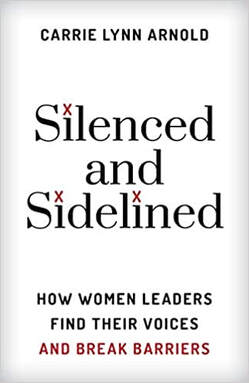|
The recent headlines continue to be a real ‘head-scratcher,’ and everyone alive has an opinion about who is to blame or who is at fault regarding controversial issues. As I comb through tweets and social media posts, one thing continues to be clear – we have lost sight of what it means to be a victim. A victim is someone whose rights are violated, or they are injured, harmed or killed as a result of a crime or event. Victims do not choose it, see it coming, or welcome it. I believe people can be victimized in multiple ways. At a minimum, people are victims when they fall into one of these two categories:
A victim mindset is when, regardless of the circumstances, we continue to see ourselves as victimized even when there is evidence to the contrary. When we do not feel heard, we can often fall into the relentless need to seek empathy. When we ask it and do not receive it, it is easy to fall into a cognitive trap of believing others are more fortunate and behave or speak from a place of victimization.
By failing to recognize and honor victims, we are creating an environment where victim mindsets can flourish. When in a victim mindset, it is difficult to see opportunities for growth, change, or transformation. Part of the anecdote to this phenomenon is to give empathy when empathy is due. We need to stop our simple need to fix, and instead, allow people to share their experiences in ways that help them heal in whatever length of time is needed. As leaders, we need to treat each situation for its unique characteristics and not broad brush all people as behaving a certain way. There will always be those few who take full advantage of circumstances, require a great deal of attention, or seem to assume harmful intent. There are also healthy people in the world who have growth mindsets who have been victimized. They deserve to heal without feeling silenced. How can you help facilitate conversations that create empathy and awareness versus judgment and shame? Follow the Conversation on LinkedIn Silencing experiences for women are far too common. The media tends to pick up on those that are sensational with a larger than life leader/predator abusing those with minimal power trying to navigate their careers. It is hard to imagine how these things can go on so long without intervention and many are questioning the silence behind what is coined the “casting couch” phenomenon. If we step outside of Hollywood and look in other corporate spaces, we will see women silenced in multiple ways, and it is not always by the sexual evil predator disguised as a wealthy and successful businessman. Women in leadership roles – with inherent power and authority based on their position – struggle with the silencing phenomenon much more than realized. There are at least three reasons why.
The phenomenon of silencing is complex, and the recovery process is not just a flip of a switch when all the sudden words are spoken, and silence is broken. It is never quite that simple. Female leaders can take years to recover fully from a silencing experience, and men have an essential role to play.
What has been your experience with silencing? follow the conversation on LinkedIn: |
Carrie Arnold, PhD, MCC, BCCIn no particular order: Author | Dog mom | Speaker | Reader | Mom to human offspring | Wife | Lover of Learning | Leadership coach & consultant, The Willow Group | Faculty for Evidence-Based Coaching at Fielding Graduate University
�
Categories
All
|
The Willow GroupCarrie Arnold, PhD, MCC
|
Silenced and Sidelined: How Women Leaders Find Their Voices and Break Barriers
|
|
© 2020 The Willow Group, LLC







